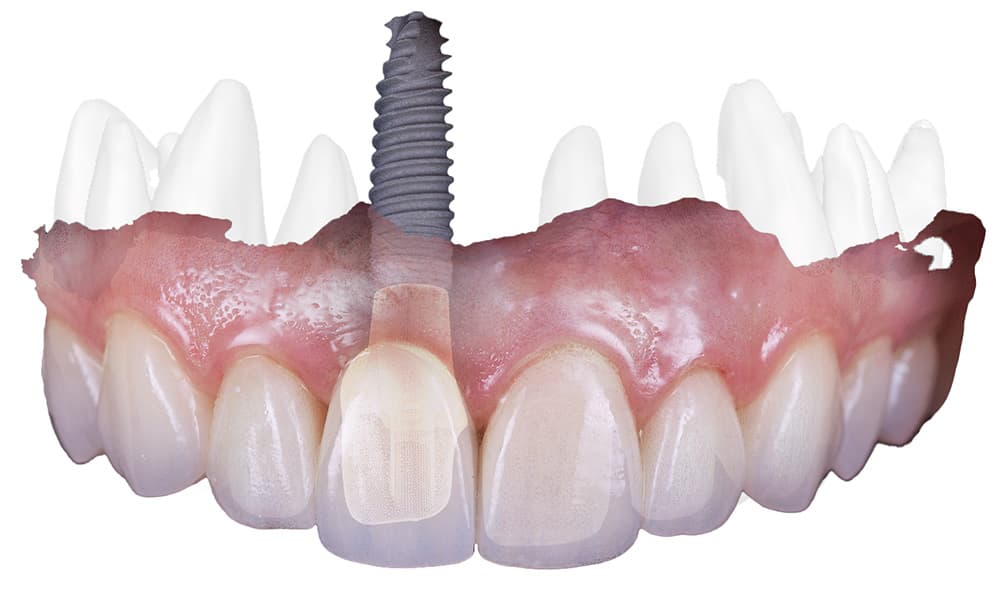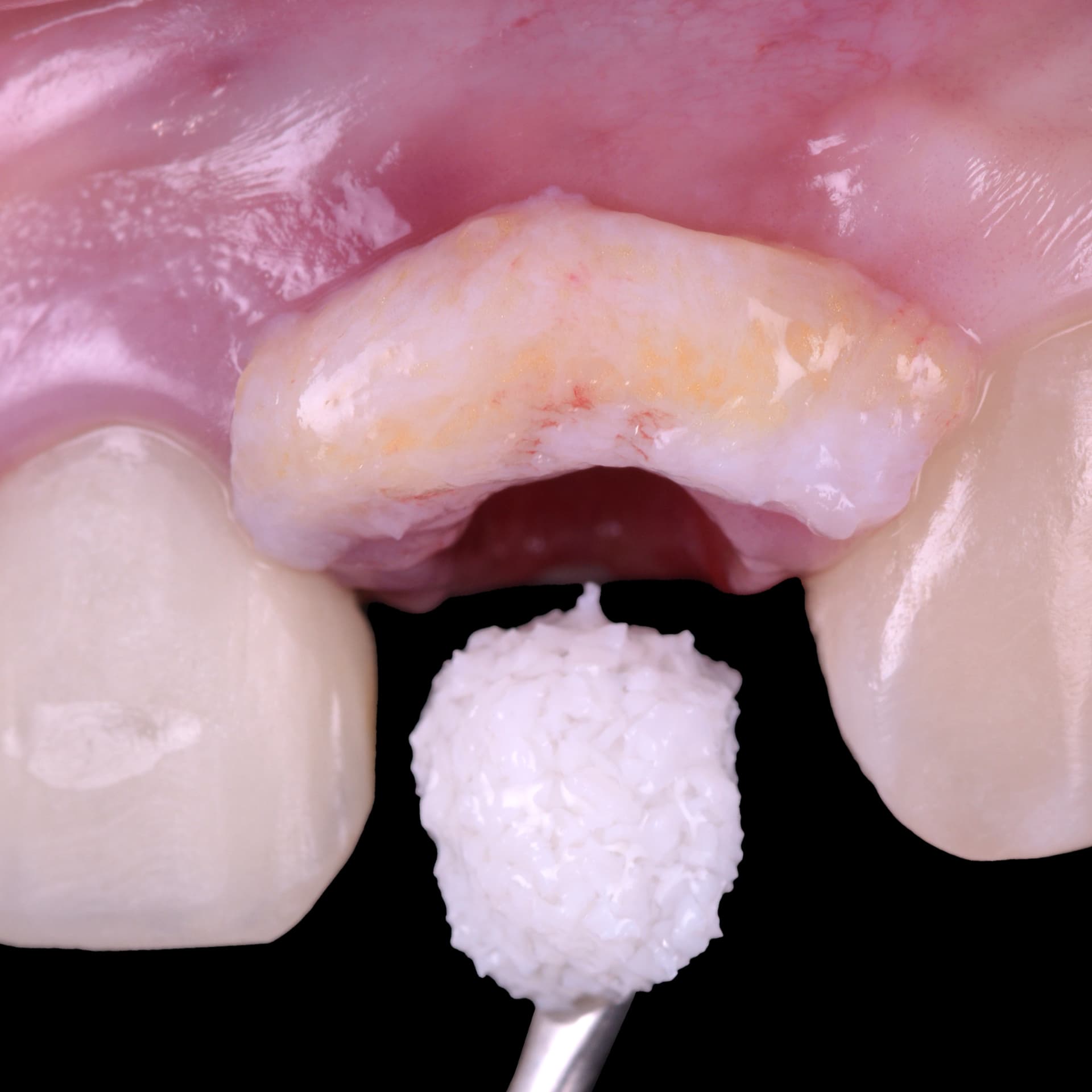
What Is Implant Surgery?
A step-by-step process for long-term function, stability, and esthetics.
Implant surgery is a structured process for replacing a missing tooth with a long-term solution. It begins with placing a small titanium post (the implant) into the bone, often guided by a digitally designed 3D template for precision. In some cases, we add bone or soft tissue to rebuild the area and ensure long-term support. After healing, a connector piece (the abutment) is added, which anchors the final crown—the visible, natural-looking restoration designed to match your smile.
1. Implant Placement – How It’s Done
Precise. Less Invasive. Better Healing.
The implant is placed using a custom-made surgical guide, designed digitally and 3D printed for your case. This makes the procedure more precise, less invasive, and better aligned with the final restoration. It also helps healing happen more smoothly and predictably.

2. Bone & Soft Tissue Grafting – Why It’s Needed
Shaping the Foundation for Long-Term Results
To achieve a natural look and long-term stability, we often perform bone or soft tissue grafting as part of the implant process. These steps help rebuild the area where the tooth was lost, compensate for natural shrinkage after extraction, and create the right support for the implant and future restoration. It’s not an exception—it’s a key part of ensuring the result looks natural and lasts over time.
Learn more about soft tissue grafting

3.Prosthetic Components – Where Form Meets Function
Restoring what you see and feel
After the implant is placed, we design the abutment and crown—the parts that shape the gum and restore the visible tooth. Their form and fit are essential for natural esthetics, long-term function, and seamless integration with your smile.
Implants Done Right. Start to Finish.
Integrated care. Designed around precision and individuality.
At Dentcof, implant treatment is not a series of separate steps—it’s a unified process. Surgical planning, prosthetic design, and lab work are all developed together, by a team that shares the same vision from start to finish. With in-house technology, long-standing partnerships, and decades of interdisciplinary experience, we focus on predictable outcomes that prioritize both function and identity-driven esthetics.

Built on Decades of Knowledge and Innovation
Three decades of documented results. One philosophy of care.
Our team authored Interdisciplinary Esthetic Dentistry, a best-selling reference that documents over 30 years of aesthetic, functional, and biological success. It reflects our long-term commitment to precision, innovation, and continuity of care.

A Network of Specialists, Working as One
Trusted collaborators. Unified vision. Predictable results.
Behind every case is a team of carefully selected specialists—surgeons, restorative dentists, and technicians—chosen for their expertise and alignment with our interdisciplinary philosophy.
We work with an experienced core team and an extended international network of collaborators available on demand. This flexible structure allows us to adapt the team to each case based on complexity, specific needs, and clinical goals.

A Safe Environment, End to End
Comfort and control, tailored to your needs.
Through our medical partnership, we provide access to general anesthesia, IV sedation, and full clinical monitoring—on demand. This allows us to manage complex medical cases or anxiety with the same control and precision as the rest of the workflow.
Dental Implants – Frequently Asked Questions
What is a dental implant?
A dental implant is a small titanium post placed into the bone to replace the root of a missing tooth. It supports a custom-made crown that restores function and appearance, acting much like a natural tooth.
Does getting an implant hurt?
The procedure is typically done under local anesthesia and is well tolerated. For added comfort or anxiety management, we offer sedation options. Most patients describe the experience as surprisingly manageable.
How long does the process take?
This depends on the clinical situation. Some cases allow for immediate placement and restoration, while others may require healing periods between steps. We’ll guide you through a personalized plan tailored to your case.
Can I get a tooth immediately after the implant is placed?
In selected cases, yes—this is known as immediate loading. But where stability or tissue healing is a concern, we may recommend a staged approach. Our priority is long-term predictability and esthetic integration.
What if I’ve lost bone in the area?
Bone resorption is common after tooth loss. In such cases, bone grafting may be needed to rebuild the foundation before or during implant placement. This helps support the implant and create natural-looking results.
How long do implants last?
With proper planning, placement, and maintenance, implants can last decades. Success is influenced by bone quality, hygiene, overall health, and the precision of the treatment process.
What does it cost?
The cost varies depending on your clinical situation, the type of restoration, and materials used. After a full clinical assessment, we provide a clear, personalized treatment plan—not a generic estimate.
Who performs the surgery and prosthetic work?
Each case is approached by a dedicated treatment team chosen based on the procedure, clinical needs, and your preferences. We work with experienced specialists in surgery, prosthetics, and lab design—ensuring the right people are involved at every step.